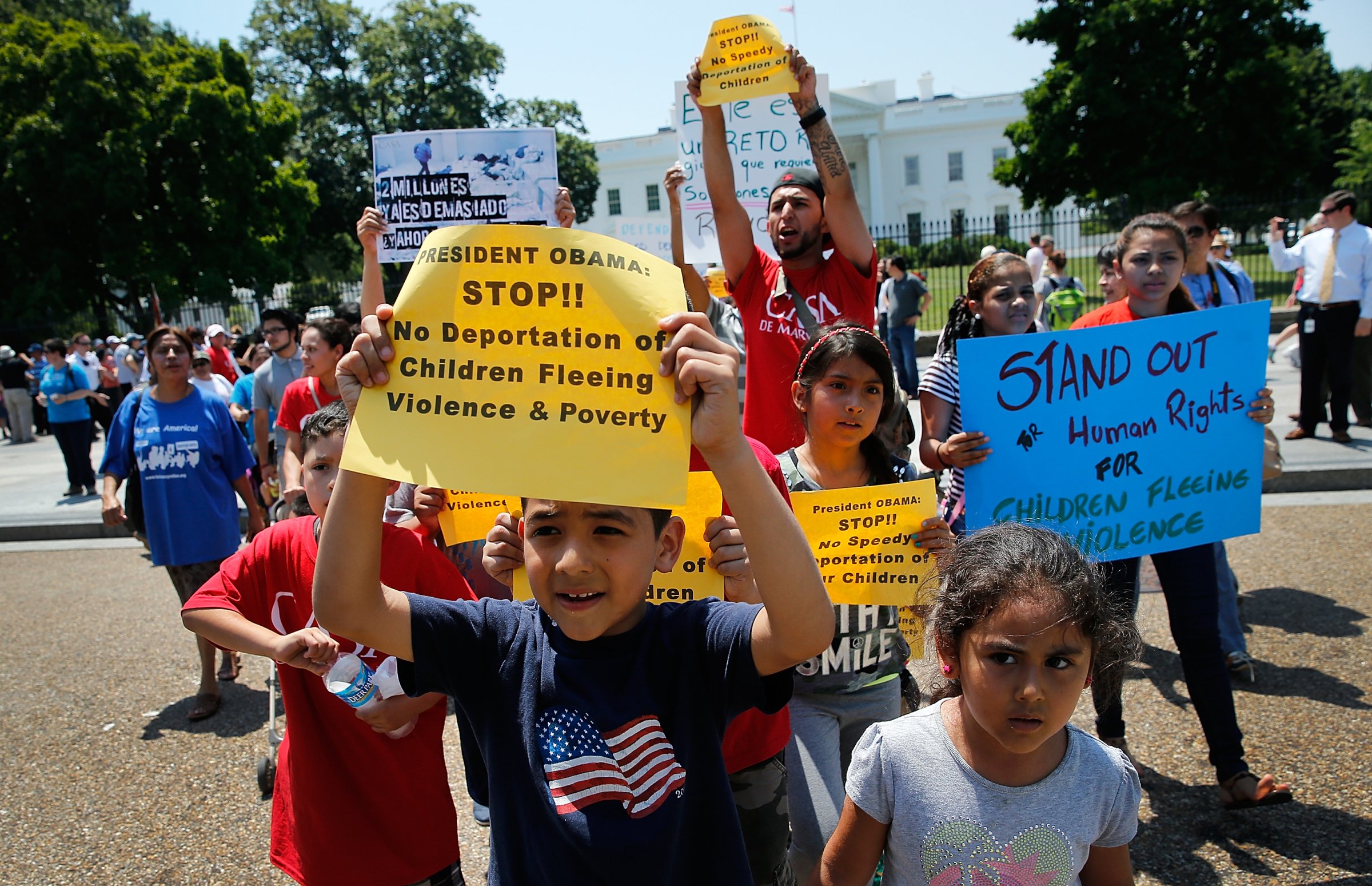
Gilberto Francisco Ramos Juarez is dead. Immigration reform is dead. These headlines are a tragic consequence of two parts of the world still incapable of finding a way to address comprehensively the issues of gang violence, extreme poverty, corruption and other root causes of immigration. This narrative repeats itself thousands of times all over the world. We can and must do better. All of us must be part of the solution.
Gilberto was an 11-year-old Guatemalan boy who died near the Southwest border of the United States, most likely in a desperate search for water. I am a father of two young boys. I wept. Jesus weeps. The church, nation and world mourn. As an evangelical pastor, I must speak of all the grief and loss associated with death just as surely as I hold to the hope of resurrection. We must find a way forward that saves as many Gilbertos as we can.
In meetings with President Obama, members of Congress, and immigrant voices last week, one thing was abundantly clear: this is a crisis. Everyone agrees that something must be done. The question remains: How do we move from political ping-pong with children’s lives to real regional and global solutions?
I told my congregation last Sunday, “Fear cannot be our basis for action. Fear is never the humane way forward.” If we are to move forward, we must work together in hope. Hope requires sacrifice and courage. This hour in American history will tell how strongly the evangelical church in America holds to these virtues. Will evangelicals step forward and asked for increased resources for security, education and sustainable development in Honduras, El Salvador, Guatemala and Nicaragua? Will we refuse to allow people to blame children for the broken immigration systems? The church cannot be silent as angry groups of people stoking the flames of fear yell at buses filled with helpless immigrant children and women. Intelligent and well-meaning people can disagree on the best way forward to this humanitarian and immigration crisis. All will agree that screaming at children caught in an inescapable web of international relations, corruption, human traffickers and stagnation on immigration reform isn’t the way forward.
There are no easy answers. Everyone has to put his or her best foot forward. Governments in Latin America must be held accountable for the security and safety of its most vulnerable citizens, particularly children. “Coyotes” and human traffickers who exploit the vulnerabilities of millions must be brought to justice. Any corruption that risks the lives of these children must be decried and eliminated. Governments, non-governmental organizations, faith-based organizations and congregations must increase our efforts to serve our brothers and sisters around the globe.
We in the United States must also remember that our commitments and foreign policy in Latin American aid, security, environment and development have a direct impact on whether Gilberto and those like him remain safely at home or dies in the desert. In addition, we must, for the sake of our shared humanity, act on immigration reform. Legislative inaction has too high a cost. And when they come to our shores seeking refuge from the tempest-tossed realities of violence and poverty, we cannot allow screaming crowds to be the voice of who we are as a people. For when we as a nation query Jesus, “Lord, when did we see you hungry, or thirsty, or a stranger, or needing clothes, or sick, or in prison and did not help you?” Jesus will reply, “Whatever you did not do for one of the least of these, you did not do for me.” What we do for Gilberto, we do for Jesus.
Rev. Dr. Gabriel Salguero is the President of the National Latino Evangelical Coalition and Pastor of The Lamb’s Church in New York.
More Must-Reads from TIME
- Inside Elon Musk’s War on Washington
- Meet the 2025 Women of the Year
- The Harsh Truth About Disability Inclusion
- Why Do More Young Adults Have Cancer?
- Colman Domingo Leads With Radical Love
- How to Get Better at Doing Things Alone
- Cecily Strong on Goober the Clown
- Column: The Rise of America’s Broligarchy
Contact us at letters@time.com